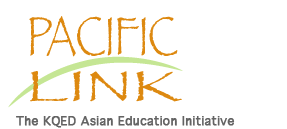|
Year
|
Events
|
|
1853
|
American sailor Matthew Perry arrives in
Tokyo Bay to demand that Japan open up to trade with the
United States and allow foreigners to enter Japan; British,
French and Russians soon follow
|
|
1854-56
|
Crimean War; Britain, France and the
Ottomans fight against Russia for control of the Crimea and
Black Sea
|
|
1857
|
Britain crushes the last major uprising
and takes full control of most of the Indian sub-continent
|
|
1861-1865
|
U.S. Civil War
|
|
1868
|
Meiji Restoration in Japan -- reformists
overthrow Tokugawa regime; reforms included representative
legislature, compulsory education, disenfranchisement of
samurai class to establish modern military; Japan became a
modern, industrialized nation
|
|
1875
|
British banking house the Rothschilds buy
majority interest in the Suez Canal Company, giving Britain
ownership of canal, protecting sea route to India
|
|
1878
|
Congress of Berlin; treaty that
officially divided sub-Saharan Africa amongst colonial
powers
|
|
1898
|
Philippines & Guam become U.S.
territory, as result of Spanish - American war; U.S. also
acquires Puerto Rico while Cuba attains independence
|
|
1899
|
U.S. government issues diplomatic
statement outlining what is known as The Open Door Policy
towards China
|
|
1900
|
Boxer Rebellion in China; Movement takes
over Tiananmen Square to protest foreign imperialist
interests in China and the Qing Dynasty's collaboration with
them. Qing administration allows foreign nations to send
troops to suppress the rebellion. Britain, France, Germany,
and Japan all contribute soldiers to the cause.
|
|
1904-05
|
Russian - Japanese war
|
|
1907
|
Henry Ford begins production on Model T
in Detroit, Michigan, USA; Ford producing a million cars per
year by 1915
|
|
1908
|
Young Turk Revolution; three revolution
leaders, Enver, Talat, and Djemal (Cemal) Pashas take over
the Ottoman government and force constitutional reforms
|
|
1911
|
Sun Yat Sen elected president of the new
Republic of China; Porfirio Diaz' dictatorship deposed in
Mexico
|
|
1914
|
Archduke Ferdinand assassinated; World
War I begins; Second Balkan War; Japan joins Allied Forces
in war against Germany & Central Powers; attacks German
holdings in Shantung, China
|
|
1917
|
Russian Revolution overthrowing Czar
Nicholas II, soon followed by the Bolshevik Revolution; U.S.
joins Allied Forces
|
|
1919
|
Paris Peace Talks; Treaty of Versailles;
Wilson rejects Japan's "racial equality clause" amendment to
League of Nations charter, but concedes Shantung in
violation of the Fourteen Points; Germany penalties; Ottoman
Empire territories divided up -- British take Egypt, Sudan,
Iraq, France takes Syria, Lebanon; Italy gets Libya
|
|
1920
|
Mahatma Ghandi begins India's non-violent
independence movement; Treaty of Sevres partitions Ottoman
lands into territories ruled by Britain, France, Greece, and
Italy; U.S. Congress fails to ratify Versailles Treaty and
League of Nations; 19th Amendment to U.S. Constitution
ratified, granting women in the U.S. the right to vote
|
|
1922
|
Japan agrees to return Shantung to China,
under pressure from U.S. & Britain; Arab Republic of
Egypt achieves independence from Britain
|
|
1923
|
Treaty of Lausanne, concluding Kemal
Ataturk's campaign against the Treaty of Sevres agreements,
established the Republic of Turkey, renounced Ottoman claims
to Arab lands
|
|
1929
|
New York Stock Market crash; Great
Depression Era -- by 1933, 11,000 of 25,000 U.S. banks fail.
Since U.S. had been the major creditor for nations during
WWI, worldwide economic depression follows.
|
|
1932
|
Kingdom of Sa'udi Arabia formed
|
|
1933
|
Adolf Hitler named chancellor in Germany;
Franklin D. Roosevelt elected president in U.S.; Reza Shah
cancels Anglo-Persian Oil Company's contracts
(British-owned)
|
|
1934
|
Philippines achieve independence from
U.S.
|
|
1936
|
Anastasio Samoza Garcia establishes
dictatorship in Nicaragua; Spanish Civil War breaks out
|
|
1937
|
Japan launches full scale invasion into
China
|
|
1939
|
Germany invades Poland; Britain and
France declare war on Germany
|
|
1941
|
Japan attacks U.S. at Pearl Harbor,
Hawaii; U.S. enters WWI in support of the Allied Forces
|
|
1944
|
D-Day: Allied Forces land at Normandy;
Syrian Arab Republic achieves independence from France
|
|
1945
|
U.S. drops atom bombs on Hiroshima and
Nagasaki, Japan; U.S. and British bomb Dresden, Germany;
Axis Powers surrender; United Nations Charter formed from
the Yalta Conference; Ho Chi Minh declares the Democratic
Republic of Vietnam; France re-occupies Laos and Cambodia;
United Malaya National Organization forms to oppose British
Rule in Malaysia and Penang
|
|
1946
|
Republic of Lebanon achieves independence
from France; First Indo-China War -- Vietnam, Laos and
Cambodia struggle for independence from France (until 1954);
Juan Peron elected president in Argentina
|
|
1947
|
India wins independence from Britain;
Pakistan created as separate state for Muslim India;
sovereignty of Kashmir ambiguous
|
|
1948
|
Korea divided into two states, North and
South Koreas; Arab-Israeli War; State of Israel established;
Burma/Myanmar achieves independence from Britain after
having been occupied by Japan during WWII
|
|
1949
|
Kuomintang retreat to Taiwan after being
defeated by Communist forces and re-establish Republic of
China; Mao Tse-dong declares the People's Republic of China
on the Mainland; Indonesia achieves independence from the
Netherlands.
|





